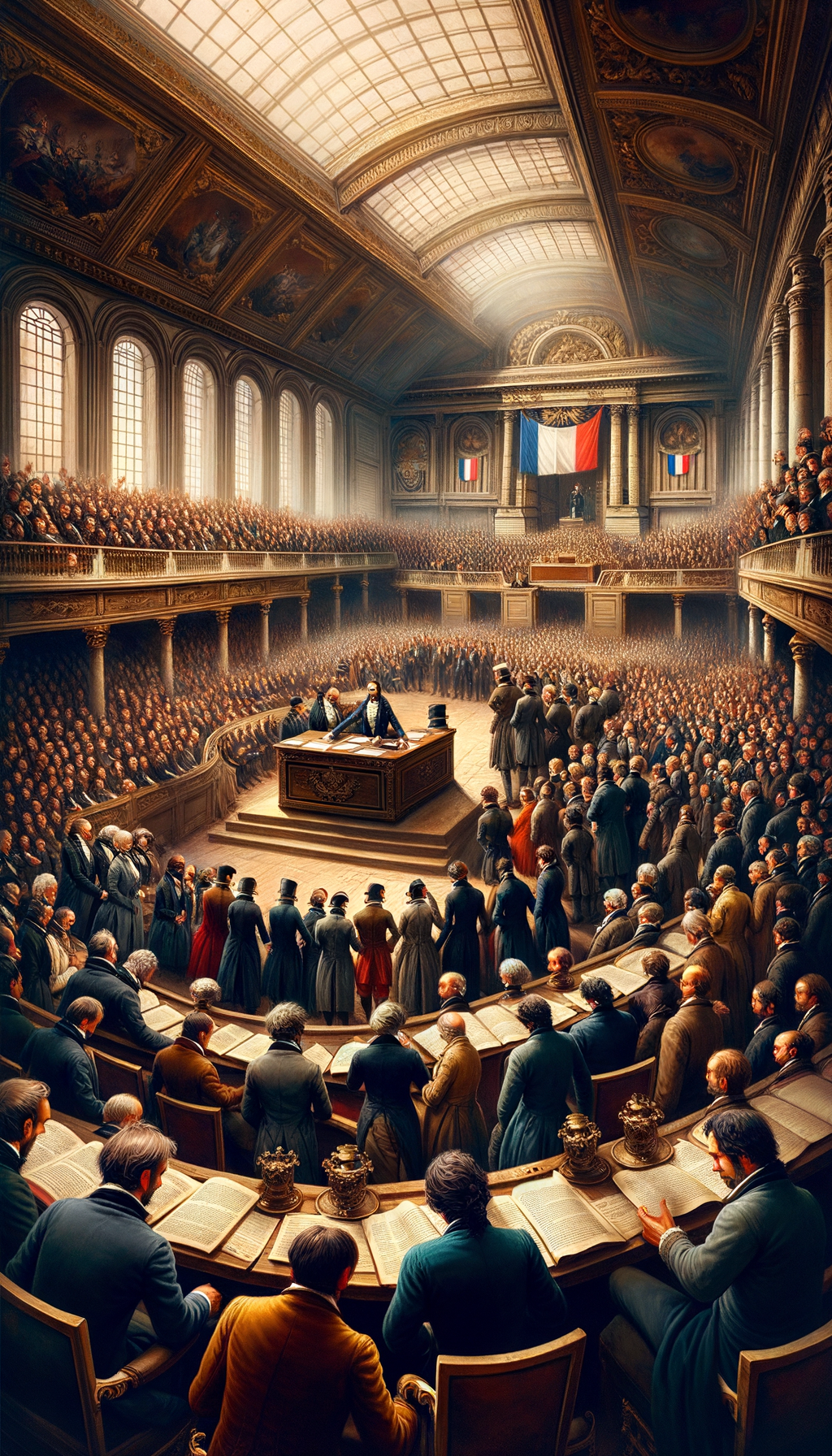France – Revolutionizing Law: The Birth of the Napoleonic Code – March 21, 1804
TLDR;
- Event: On March 21, 1804, the Napoleonic Code was introduced in Paris, France, marking a significant shift in legal systems post-French Revolution.
- Significance: The Code aimed to unify and modernize French law, promoting principles of equality, secularism, and rationality, though it retained some religious influences and patriarchal elements.
- Impact: It abolished feudal privileges, established civil liberties and property rights, and influenced legal systems globally, despite criticisms of rigidity and centralization.
- Legacy: The Napoleonic Code remains a foundational text for modern civil law, demonstrating the transformative power of legal reform.
–
Story
In the grand halls of Paris, a new era of justice was being forged. The air was thick with anticipation as Napoleon Bonaparte, the formidable leader of France, prepared to unveil a legal masterpiece that would echo through the ages—the Napoleonic Code.

The year was 1804, and France was a nation reborn from the fires of revolution. The old feudal laws had been swept away, leaving a void that demanded order and clarity. Napoleon, ever the visionary, saw an opportunity to unify the nation under a single, coherent legal framework. However, while Napoleon was a driving force behind the Code, his role was more about endorsing and promoting it rather than directly crafting the legal text. The actual drafting was primarily the work of a commission of legal experts, including Jean-Jacques-Régis de Cambacérès.
The Napoleonic Code was not just a set of laws; it was a bold statement of equality, secularism, and rationality. Yet, it was not entirely secular in the modern sense. While it promoted secularism by separating church and state in legal matters, it maintained certain religious influences, such as recognizing the Catholic Church’s role in marriage ceremonies, although civil marriage was also established.
The Code abolished feudal privileges and established the principles of civil liberty and property rights. It was a radical departure from the patchwork of laws that had governed France for centuries. For the first time, the law was accessible to all, not just the elite. However, it did not grant full equality to all individuals. It reinforced the patriarchal structure of society by giving husbands control over their wives and children, and it did not address the issue of slavery, which was still practiced in French colonies at the time.
Despite these limitations, the Napoleonic Code was a beacon of modernity, influencing legal systems far beyond France’s borders, from Europe to Latin America and beyond. But the Code was not without its critics. Some argued it was too rigid, too centralized, and that it favored the state over the individual. Yet, its impact was undeniable. It laid the groundwork for modern civil law and inspired countless nations to reform their own legal systems.
As the ink dried on the final draft, Napoleon had not only reshaped France but had also left an indelible mark on the world. The Napoleonic Code was more than a legal document; it was a testament to the power of ideas to transform society.
–
| Would a different legal framework have changed the course of history? |